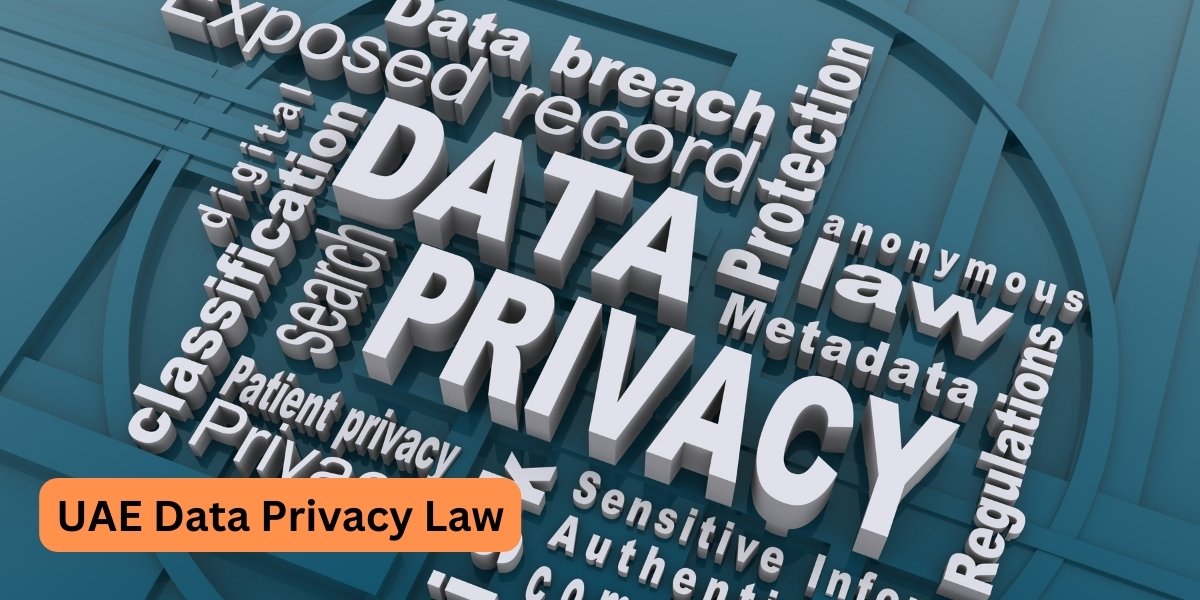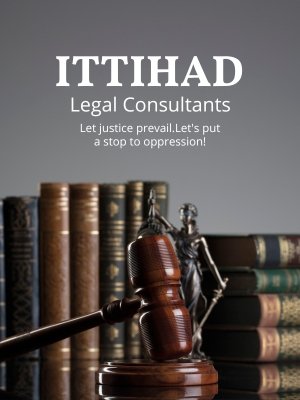Table of Contents
ToggleIntroduction
Welcome! Today, We will discuss something very important: the UAE Data Privacy Law. You might think that data privacy laws are dull or hard to understand, but believe me, they’re very important for keeping our private data safe. This rule is very important to know whether you run a business, work with data, or are just interested in how your data is kept secure. Let’s look at it together!
In this modern world, private information is precious. So much of our lives are shared online, like our names, addresses, phone numbers, and even the stores we shop at. This information has a risk, but it also lets companies offer more personalized services. Misusing or abusing personal information can cause privacy breaches, identity theft, and a loss of trust. This is where the UAE Data Privacy Law comes in. It gives us an organized way to protect your data.
Brief Overview of the UAE Data Privacy Law
What does this law mean? It was made law on January 2, 2022, and began to be enforced on January 2, 2023. Its full name is Federal Law No. 45 of 2021 on the Protection of Personal Data. This law ensures that all personal data processing is done responsibly and respectfully, no matter where it happens.
The UAE is now one of the countries with strong data security laws, which are more like the GDPR in Europe and other international standards. The main goal is to give people more control over their personal data and ensure that companies and other groups are careful with it.
Importance of Understanding the Law
Why should I care? The UAE Data Privacy Law says that anyone or any business that deals with personal data must comply with it or face heavy fines and punishments. Also, letting your users or customers know that their info is safe with you builds trust.
Businesses need to know and follow the UAE Data Privacy Law to avoid problems with it and show they care about protecting customer privacy. This can give you an edge in a market where people are becoming more worried about how their data is used. If people know what rights they have under this law, they can take action if their data is misused.
Scope and Applicability
Entities Covered by the Law
Everyone dealing with personal data has to follow this rule, which might be cool or not. This includes businesses, the government, and even people. In other words, this rule covers you if you handle personal information about someone in the UAE.
Many businesses, from big multinationals to small local shops and even workers with personal data, must follow these rules. It covers everything and ensures that personal information is always safe.
Processing of Personal Data Within and Outside the UAE
It doesn’t matter where you are, which is very interesting. If you handle personal information about people in the UAE, you are subject to this rule, no matter where you are. In other words, it has a global effect.
This extraterritorial scope ensures that the data of UAE citizens is safe no matter where it is processed. This is similar to the GDPR, showing that the UAE seriously upholds strict data security standards worldwide.
Key Requirements
Obtaining Valid Consent
First things first: say yes. Before you handle someone’s data, you must get their valid permission. Also, guess what? They can take back their permission at any time. No more sneaky information gathering!
There needs to be more than just a checkbox on a form; more is required to get permission. It has to be something that the person knowingly and voluntarily does. This means being very clear about what information you’re gathering, why you’re gathering it, how you plan to use it, and who you plan to share it with. And if someone changes their mind, it should be as easy to take away permission as it was to give it.
Providing Transparent Privacy Information
Being open is essential. People have a right to know how their information is being used. It would help if you said why you’re collecting the data, who you’re sharing it with, and whether it will be sent across countries.
Think of it as getting to know someone and gaining trust. People are more likely to trust you with their info if they know exactly what you’re doing with it. That means making sure you have a privacy policy that is clear, easy to find and covers all of these points.
Implementing Data Protection Measures
Watch out for safety, safety, safety! To keep personal information safe from people who shouldn’t be able to see, change, or even delete it, you must have robust technology and organizational measures in place.
This means keeping data safe with encryption, firewalls, and other security tools. It also means having rules and instructions for handling data safely, teaching your staff how to keep data safe, and checking your security regularly to ensure it works correctly.
Appointing a Data Protection Officer
You need to hire a Data Protection Officer (DPO) if the work you do with data is high-risk. This person oversees your data protection plan and will ensure you follow the law.
The DPO is essential for understanding the complicated data security laws. They are the link between your company and the government agencies that oversee data protection, ensuring that all data processing actions are legal and that any problems are quickly fixed.
Conducting Data Protection Impact Assessments
You’ll also need to do Data Protection Impact Assessments for those high-risk tasks. These tests help you determine the risks and how to lower them.
One way to find and lower data protection risks is to use a Data Protection Impact Assessment (DPIA). This is especially important for new projects or plans that will use personal information. The DPIA process looks at how personal information is gathered, kept, and used, finds possible risks, and takes steps to deal with those risks.
Reporting Personal Data Breaches
When something goes wrong, and there is a data breach, you must tell the UAE Data Office, and sometimes the people are harmed. Quick action is required to keep the damage to a minimum.
Bad things can happen after a data breach, like losing money or hurting your image. You can lessen these impacts by reporting breaches quickly. In your report, you should explain what happened, what data was affected, and what you’re doing to fix the problem and stop it from happening again.
Individual Rights
Right to Access Personal Data
People have the right to see your personal information on file about them. They can ask you what information about them you have and how you use it.
This right protects privacy and gives people power over the information about them. If someone asks for access, you must provide them with a copy of their data in a format that is easy to read and understand, along with information about how it is being used and shared.
Right to Correct Personal Data
People can ask you to correct incomplete information if they believe it is important. Not only is keeping correct records a good idea, but it’s also their right to do so.
Accuracy is very important for confidence and efficiency. When someone asks for a fix, you should quickly update your records and inform anyone who got the wrong information. It would help if you also made sure that the changes are made to all of your data processing activities.
Right to Delete Personal Data
People can ask you to delete their sensitive information. This is also known as the “right to be forgotten.” This is very important if the information is no longer needed for the reason it was gathered.
People can better control their digital trail by deleting data when asked to. When you get this kind of request, you must ensure that all copies of the data are deleted from your systems and that anyone else with access to the data is also told to do the same.
Right to Port Personal Data
People can ask to have their data saved in a way that lets them take it to a different service provider. This is all about giving people power over their data.
Moving your data from one tool or provider to another is helpful. The data should be given in a structured, widely used, and machine-readable manner. This will make it simple for people to send their data to other people without losing any information.
Right to Object to Certain Types of Processing
People also have the right to say no to certain types of data processing, such as direct marketing. You must honor someone’s “no” if they say it.
People can decide how their information is used, especially regarding things that directly affect them, like targeted ads. If someone protests, you must stop using their information for that reason unless you have a solid legal reason to keep going.
Regulatory Authority and Enforcement
Role of the UAE Data Office
The UAE Data Office monitors things here. It ensures everyone follows the rules, gives advice, and develops new rules as needed.
The UAE Data Office is very important because it monitors data protection, helps groups by providing support and resources, and ensures that they follow the rules by auditing and checking them regularly. In addition, it helps people understand their rights and how to use them.
Enforcement Mechanisms and Penalties
Enforcement systems and punishments are in place if you don’t follow the rules. Because these are serious, everyone should follow the rules.
Not following the rules can lead to big fines, limits on what you can do with your data or even legal action. These steps aim to ensure that companies actually care about protecting personal data and prioritize privacy and security.
Conclusion
The UAE Data Privacy Law is a complete set of rules to keep personal information safe. Whether you’re a business, a group, or a person, it’s essential to understand and follow this law. It prevents you from getting fined and helps you build trust with your users or buyers. So, pay attention to these rules and ensure you’re handling information properly.
Don’t hesitate to contact Ittihad Legal Consultants if you need help figuring out the UAE Data Privacy Law or making sure your business is following the rules. We’re here to help you every step of the way, from making sure you know what the law requires of you to implementing strong data protection measures.
That’s all there is to it! Please feel free to leave a message or get in touch if you need an answer or more information. Always be careful with your info!
What is the UAE Data Privacy Law?
The UAE has enacted Federal Law No. 45 of 2021 on the Protection of Personal Data, which came into effect on January 2, 2022, and will be enforceable starting January 2, 2023. The law aims to protect the personal data of individuals in the UAE. Regardless of location, it applies to any entity that processes personal data, including government bodies, companies, and individuals.
What are the critical requirements of the UAE Data Privacy Law?
Essential requirements include:
- Obtaining valid consent from individuals before processing their data.
- Providing transparent privacy information.
- Implementing appropriate data protection measures.
- Appointing a data protection officer for high-risk processing activities.
- Conducting data protection impact assessments.
- Reporting personal data breaches to the UAE Data Office and affected individuals.
What rights do individuals have under the UAE Data Privacy Law?
Individuals can access, correct, delete, and port their data and objects to certain processing types, such as direct marketing.
Who is responsible for enforcing the UAE Data Privacy Law?
The UAE Data Office has been established as the regulatory authority responsible for enforcing the law, issuing guidance, and developing further regulations.
Does the UAE Data Privacy Law apply to entities outside the UAE?
Yes, the law applies to any entity that processes the personal data of individuals in the UAE, regardless of whether they are located inside or outside the UAE.







